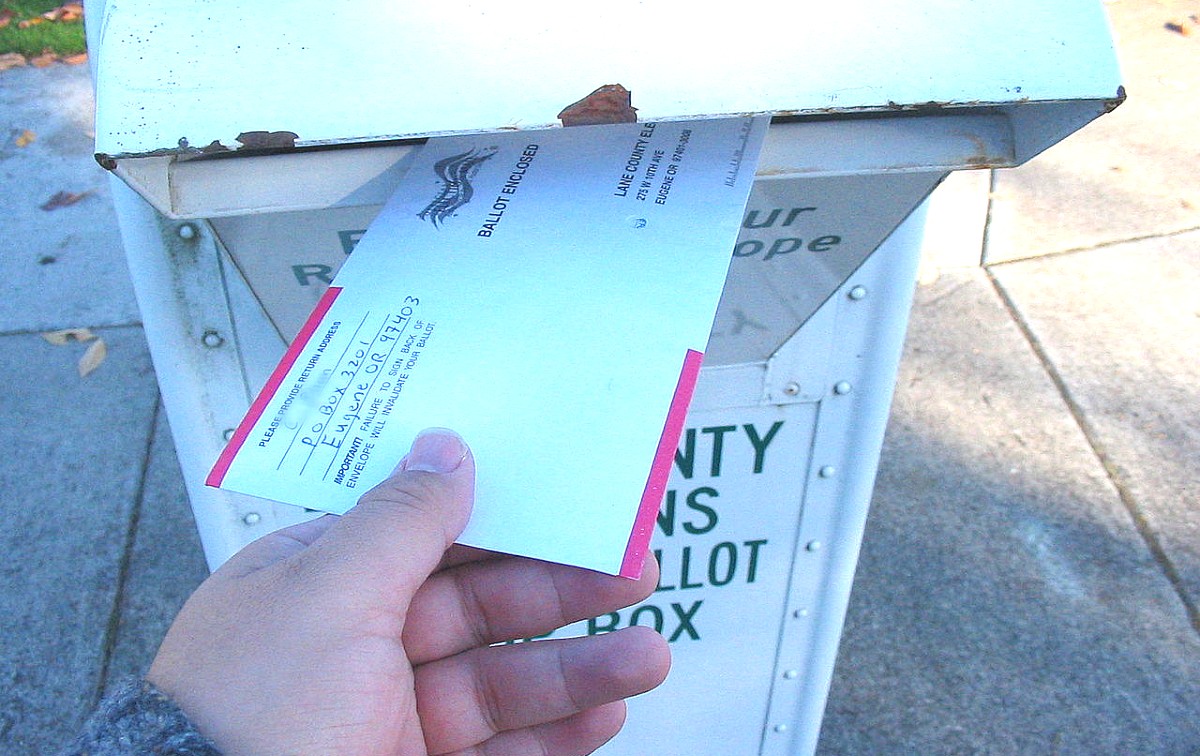By Elliott Brack
Editor and Publisher, GwinnettForum
APRIL 3, 2020 | Any time a situation is developing, once a leader has the facts, a good leader acts quickly.
 That’s what Georgia Secretary of State Brad Raffensperger did in mailing absentee ballot applications to all Georgia voters this week. Anticipating continual coronavirus problems possible on the May 19 Georgia primary, he took action to allow voters, if they choose, to vote by absentee ballot, which is essentially voting by mail.
That’s what Georgia Secretary of State Brad Raffensperger did in mailing absentee ballot applications to all Georgia voters this week. Anticipating continual coronavirus problems possible on the May 19 Georgia primary, he took action to allow voters, if they choose, to vote by absentee ballot, which is essentially voting by mail.
The Secretary of State’s immediate action is distinctly different from what many leaders show in reaction to coronavirus threats. Raffensperger anticipated a problem, thought through it, and quickly made provisions to curb problems immediately. For this, he should be commended by all. (Even if the state postpones the primary, and we hope it won’t, his move to allow people to stay away from the polls yet cast a ballot is far-sighted.)
All this brings to mind a far-off possibility for Georgia that has already been adopted by two states, and tried in three others. In 1998 voters in Oregon passed legislation allowing all elections to be conducted by mail, commonly called “Vote by Mail.” The first year that this took place was in 2000, and since then, it has worked remarkably easily in Oregon. Today the State of Washington also conducts all its voting by mail, while three other states, Colorado, Hawaii and Utah, mail ballots each year to voters.
As a result, Oregon leads the nation in the percentage of those registered voting, at 80-85 percent in the general election in presidential years.
Tim Scott, director of elections for Multnomah County (the biggest county in Oregon, where Portland is located), says it works smoothly. He says: “After 20 years of voting by mail in Oregon, the voters are satisfied, and those of us who administer the mail-in voting are also satisfied very well. Oregon is consistently in the top five in the nation for turnout.”
Multnomah County is similar to Gwinnett in that it has 550,000 registered voters (Gwinnett has 565,428). Scott says: “There are efficiencies from centralization of voting. In Multnomah County, it takes about 150 people to help process the ballots. They have to open the mailed-in ballots, verify each ballot’s signature, scan and tally the ballot. In presidential years, 40-50 percent of ballots come in the last four days.”
On election nights, when voting ceases at 8 p.m., Scott can in the next minute release the results of the 50-60 percent that have been tallied, and post those results online. Scott says that “Media uses this to “call” elections, which most of the time do not change dramatically. However, to count the remaining ballots usually takes another two days before the final results totaled.”
Prior to living in Oregon, Scott ran elections in Virginia. “I would much rather run mail-in elections than having polling places to operate one election day. The training is much easier to lead, the equipment is easier to operate, and all the logistic complications don’t happen with vote by mail.
Scott adds: “And now with the complications of coronavirus, this would bring hordes of people to polling places on election day. So now that would be really difficult in keeping people apart. I feel for the states that still do most of their voting on election day.”
Will Georgia ever consider vote by mail? The coronavirus difficulties might change some thinking about voting in person! At least Oregon, plus Washington, are finding vote-by-mail workable…and easier.
- Have a comment? Send to: elliott@brack.net










Follow Us